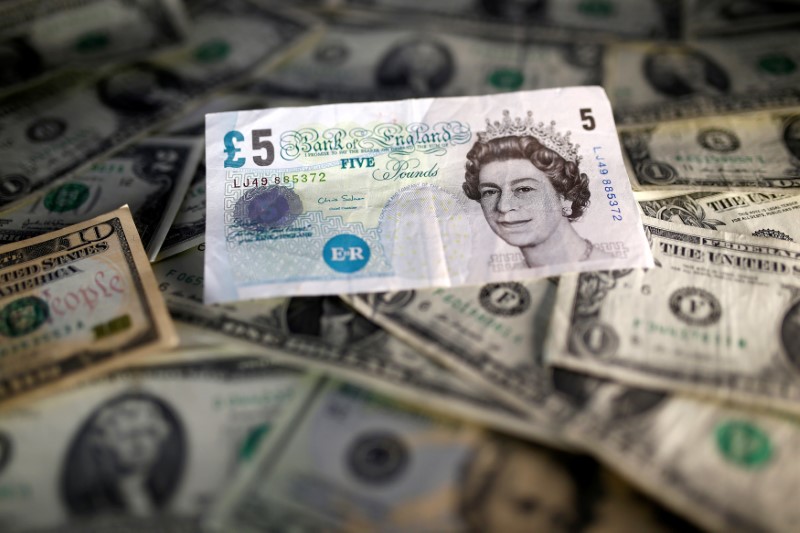Investing.com - The British pound hit 31-month highs against the euro on Monday and hit seven-month highs against the U.S. dollar amid growing confidence about a Conservative Party victory in Thursday’s U.K. elections, which would end political paralysis on Brexit.
The euro touched a low of 0.8406 against sterling by 04:03 AM ET (09:03 GMT), the weakest level since May 2017.
The pound was boosted as fears over the prospect of a hung parliament receded after an opinion poll on Monday showed that the Conservative Party extended its lead over the Labor Party to 14 percentage points, up from 9 percentage points a week ago.
"Markets now think the Tories will win. But if they fail to win an outright majority, that means essentially nothing is different from now and will be a fairly big shock for the market," said Minori Uchida, chief FX analyst at MUFG Bank.
Against the dollar, sterling hit a high of 1.3180, the most since May and was last at 1.3161.
Demand for the dollar was underpinned on Monday after Friday’s blockbuster jobs report, but the currency struggled to make headway amid worries about an escalation in the U.S.-China trade war.
The U.S. dollar index edged down to 97.59 after rising 0.3% on Friday. The euro traded at 1.1065 after hitting a one-week low of 1.1039 on Friday.
The dollar was slightly lower against the Japanese yen at 108.45.
U.S. nonfarm payrolls increased by 266,000 jobs last month, the biggest gain in 10 months, while the unemployment rate ticked back down to 3.5%, its lowest level in nearly half a century.
Those figures suggested the Trump administration's 17-month trade war with China, which has plunged manufacturing into recession, has not yet spilled over to the broader U.S. economy.
Still, investors think that could change if trade tensions escalate further, especially if Trump goes ahead with planned tariffs on some $156 billion worth of products from China from Dec. 15.
The market has been largely working on the assumption that those tariffs, which cover several consumer products such as cellphones and toys, will be dropped or at least postponed, given that Washington and Beijing agreed in October to work on a trade deal.
"Markets are sensing that both sides want to avoid a collapse of their negotiation, judging from various news headlines," said Kazushige Kaida, chief of forex at State Street. "So the main scenario is for the dollar/yen to test mid-109 yen levels."
Top White House economic adviser Larry Kudlow confirmed on Friday that the Dec. 15 deadline to impose the new tariffs remains in place, but added that Trump likes where trade talks with China are going.
China's exports shrank for the fourth consecutive month in November, underscoring persistent pressures on manufacturers from the Sino-U.S. trade war.
--Reuters contributed to this report
